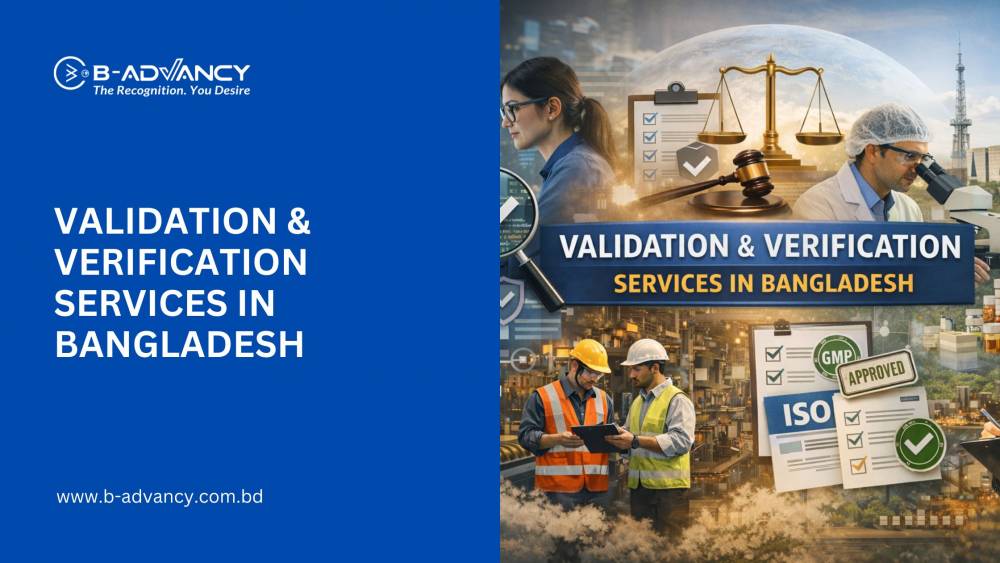The printing and publishing industry in Bangladesh plays a crucial role in the dissemination of information, education, and culture. As the industry evolves with technological advancements and increasing demand for high-quality products, maintaining standards of quality, efficiency, and environmental sustainability becomes essential. ISO certification provides a globally recognized framework that helps printing and publishing companies meet these standards, ensuring they remain competitive in both local and international markets. In this blog, we will explore the importance of ISO certification for the printing and publishing industry in Bangladesh, the key ISO standards applicable, the benefits they offer, and how you can begin your certification journey with B-ADVANCY Certification Limited.
What is ISO Certification and Why is it Important for the Printing and Publishing Industry?
ISO certification is an accreditation from the International Organization for Standardization (ISO) that signifies a company's compliance with one of its internationally recognized management system standards. For the printing and publishing industry, ISO certification demonstrates a commitment to quality, sustainability, and operational efficiency—factors that are crucial in building customer trust and meeting regulatory requirements.
In Bangladesh, the printing and publishing sector includes a wide range of activities, from book and newspaper printing to packaging and digital content creation. ISO certification helps companies in this industry ensure that their products consistently meet quality standards, minimize errors, and improve overall efficiency. Additionally, ISO certification can open doors to international markets by aligning with global standards, which is increasingly important in a globalized economy.
Key ISO Standards for the Printing and Publishing Industry
Several ISO standards are particularly relevant for the printing and publishing industry in Bangladesh:
ISO 9001:2015 - Quality Management Systems
ISO 9001:2015 is essential for companies in the printing and publishing industry. This standard helps organizations develop processes that ensure consistent product quality, improve customer satisfaction, and enhance operational efficiency.
ISO 14001:2015 - Environmental Management Systems
The printing and publishing industry can have a significant environmental impact, particularly in terms of waste management and resource usage. ISO 14001:2015 helps companies manage their environmental responsibilities systematically, promoting sustainability and reducing their ecological footprint.
ISO 12647-9:2021 - Process Control for the Production of Half-tone Colour Separations, Proof and Production Prints
ISO 12647-9:2021 is specifically designed for the printing industry and focuses on standardizing the printing process to ensure consistent color quality. This standard is crucial for companies aiming to produce high-quality printed materials that meet international benchmarks.
ISO 45001:2018 - Occupational Health and Safety Management Systems
ISO 45001:2018 is vital for ensuring a safe working environment in the printing and publishing industry, where workers are often exposed to physical risks. This standard provides a framework for identifying and mitigating workplace hazards.
ISO 27001:2022 - Information Security Management Systems
In the publishing sector, protecting intellectual property and sensitive information is paramount. ISO 27001:2022 helps organizations establish a robust information security management system (ISMS) to safeguard their data.
Benefits of ISO Certification for the Printing and Publishing Industry in Bangladesh
Enhanced Product Quality and Consistency
ISO certification helps printing and publishing companies ensure that their products meet high standards of quality and consistency. This leads to better customer satisfaction and a stronger brand reputation.
Environmental Sustainability
Implementing ISO standards such as ISO 14001 helps companies reduce their environmental impact, which is increasingly important as consumers and regulators demand more sustainable practices.
Operational Efficiency and Cost Reduction
By adopting ISO standards, companies can streamline their processes, reduce waste, and minimize errors. This not only improves efficiency but also results in significant cost savings.
Compliance with Regulatory Requirements
ISO standards provide a structured approach to meeting local and international regulatory requirements. Compliance helps avoid legal issues and ensures continuous operation.
Increased Market Competitiveness
ISO certification is an internationally recognized mark of quality that can give printing and publishing companies a competitive edge. It helps attract new customers, partners, and investors, both locally and internationally.
Facilitation of International Trade
ISO certification aligns printing and publishing companies with global standards, making it easier to enter and compete in international markets. This is particularly important for Bangladeshi companies looking to expand their export potential.
Steps to Achieve ISO Certification for Your Printing and Publishing Business
Achieving ISO certification involves several key steps:
Initial Assessment and Gap Analysis
Begin by evaluating your current processes against the requirements of the relevant ISO standard. Identify gaps and areas that need improvement to meet the certification criteria.
Develop and Implement a Management System
Design and implement a management system that complies with the chosen ISO standard. This may involve documenting processes, setting objectives, and training employees on new procedures.
Internal Audit and Management Review
Conduct internal audits to ensure your management system is effective and compliant. Regular management reviews are essential to address any issues and drive continuous improvement.
Select a Certification Body
Choose a reputable certification body, such as B-ADVANCY Certification Limited, to conduct an external audit. Prepare thoroughly for this audit to demonstrate compliance with the ISO standard.
Achieve Certification and Commit to Ongoing Improvement
After a successful audit, you will receive ISO certification. It’s important to maintain and improve your management system to retain certification and continue benefiting from it.
Relevant Authorities and Resources in Bangladesh
For companies in the printing and publishing industry seeking ISO certification, the following authorities and resources in Bangladesh can provide valuable guidance and support:
-
Bangladesh Standards and Testing Institution (BSTI): BSTI is the national standards body of Bangladesh, responsible for developing and promoting standards across various industries, including printing and publishing. More information can be found on their official website: BSTI.
-
Department of Environment (DoE): The DoE regulates environmental standards and compliance in Bangladesh. Companies seeking ISO 14001 certification should familiarize themselves with the DoE's guidelines. Visit their website for more details: DoE.
-
Ministry of Industries (MoI): The MoI oversees industrial policy and regulations in Bangladesh. They provide resources and support for companies looking to improve their operational standards through certification. Learn more here: MoI.
Conclusion
ISO certification is more than just a formality for the printing and publishing industry in Bangladesh; it is a strategic investment that can significantly enhance product quality, operational efficiency, and market competitiveness. By aligning your processes with internationally recognized standards, your business can achieve consistent product quality, improve environmental sustainability, and gain a competitive edge in both local and global markets. While the certification journey may present some challenges, the long-term benefits far outweigh the initial efforts.





































































































































































































